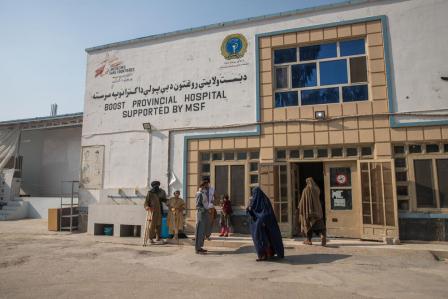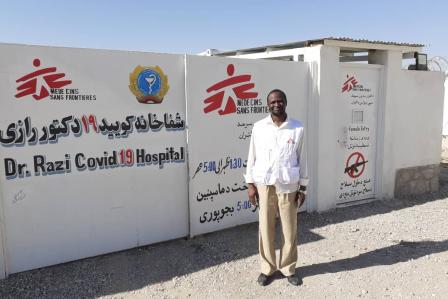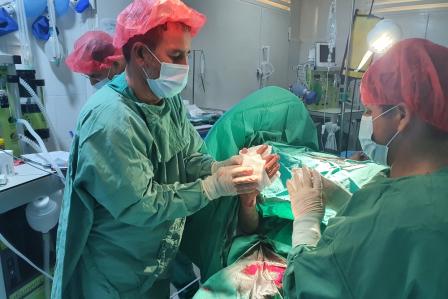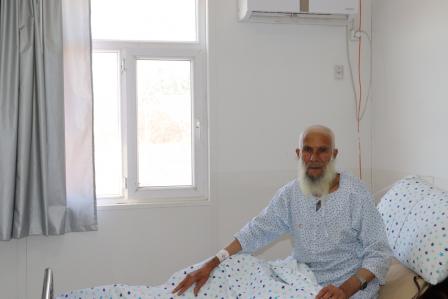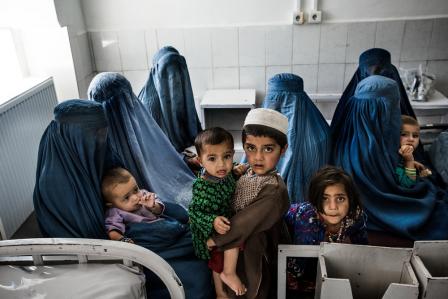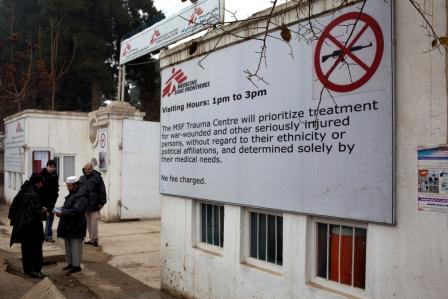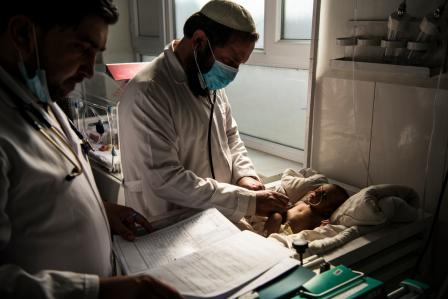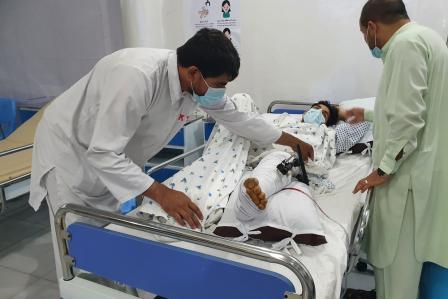In just one day we performed 10 surgeries on people injured by violence
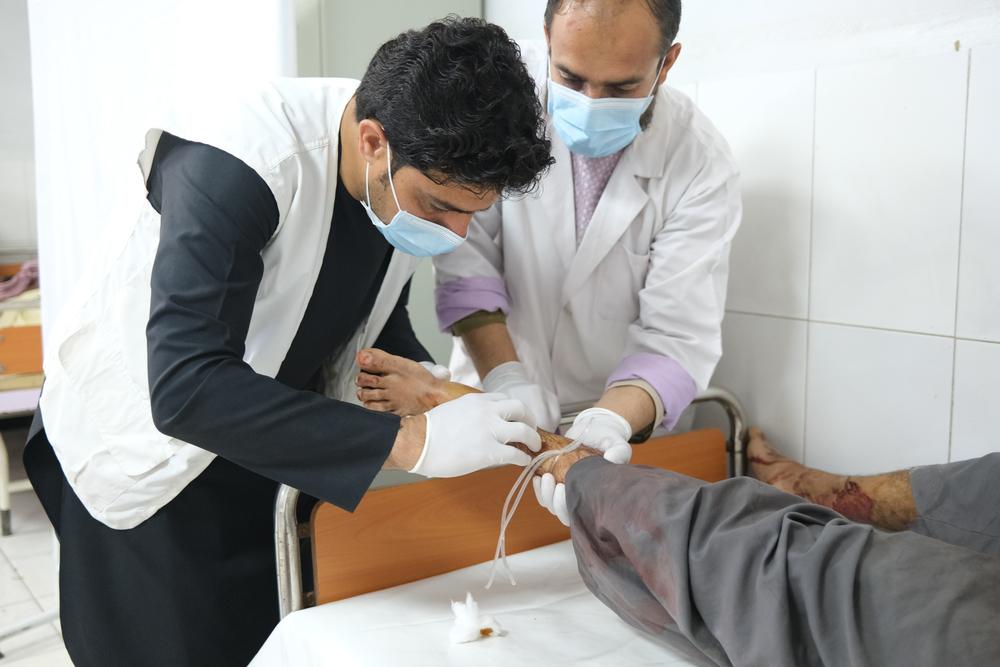
Doctors Without Borders Emergency room supervisor Masood Khan treats a patient for a gunshot wound at the Boost hospital. Helmand province, Afghanistan
“There has been relentless gunfire, air strikes and mortars in densely populated areas. Houses are being bombed, and many people are suffering severe injuries,” explains Sarah Leahy, coordinator of the Doctors Without Borders Helmand project.
“Fighting within the city makes it harder for us to respond; our staff are part of the community and they, like many people, are afraid to leave their homes. It’s just far too dangerous and life is at a standstill. Some of our colleagues are staying overnight in the hospital as it’s safer, but also so they can keep on treating patients. The situation has been dire for months but now it is even worse.”
Despite the challenges, the Doctors Without Borders-supported Boost hospital remains operational and has seen a marked increase in trauma needs over the last week.
“In just one day we performed 10 surgeries on people injured by violence, which is unheard of for Doctors Without Borders here as we are not Lashkar Gah’s main provider of trauma care,” said Leahy. “Before last week we have been operating on average on two war-wounded people per day.” The main trauma centre in the city is run by another organization, and it too is under immense pressure; the people they cannot admit are sent to Doctors Without Borders for care.
The fighting also exacerbates health needs beyond trauma care. Given the lack of well-functioning and affordable medical facilities in Helmand, people rely on the 300-bed Boost hospital, the only referral hospital in the province, for essential neonatal, paediatric, inpatient, intensive care, maternity, malnutrition, and surgical services among others. Since May though, Doctors Without Borders staff have witnessed an alarming increase in the severity of patients’ illnesses when they arrive at the hospital. People described how, despite needing medical care, they have been forced to wait at home until the fighting subsides or to take dangerous alternate routes. With fighting taking place not far from Boost hospital, and people too afraid to leave their homes due to the violence access to healthcare access is dangerously low
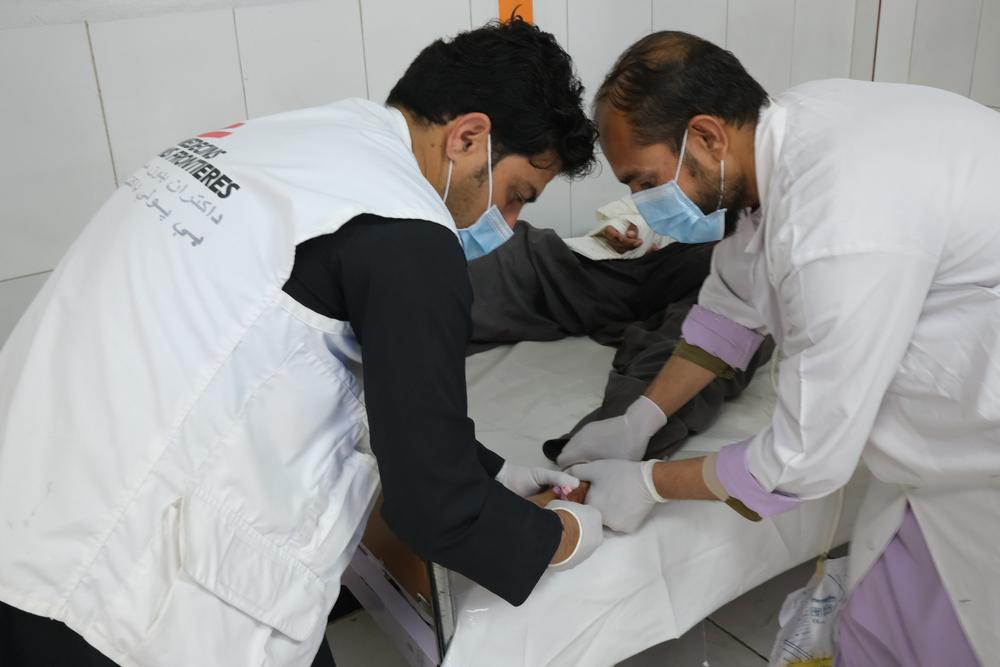
@MSF
“We have had patients who were caught in crossfire. On top of something like severe diarrhoea, they have also arrived with a bullet in their shoulder or their leg,” explains a doctor working in the Doctors Without Borders Emergency Room and Intensive Care Unit at Boost hospital.
“The conflict leads people to think ten times if they really want to make the journey. They delay until they can’t wait any more, when their relatives haven’t opened their eyes for two or three days, have shallow breathing and are unresponsive. From a medical perspective, that’s almost too late.”
And when people do make it to care, that is just a first step. The effects of the conflict have long-term consequences too, as one patient with bullets wounds to both his arms explained, “All my family depend on me, but I feel like in the future I won’t be able to work because of my injuries. It’ll be very hard for me to feed my family. I’ve left my home and I cannot go back there.”
Even amongst Doctors Without Borders staff, the impact of the fighting is clearly visible. An Doctors Without Borders doctor explains, “Healthcare staff are exhausted. The work itself, seeing all these patients, is hugely difficult. And then on top of that, people have to deal a lot with outside pressures and worries.” Doctors Without Borders continues to provide much-needed healthcare in Boost hospital, and also has projects in four other locations around the country, Herat, Kandahar, Khost and Kunduz.
